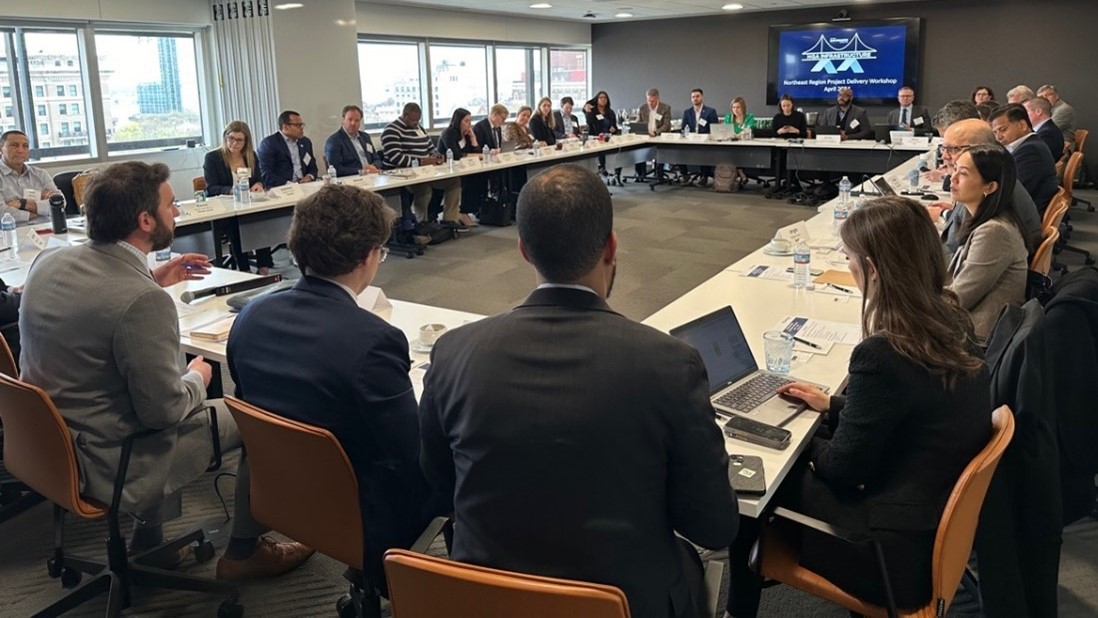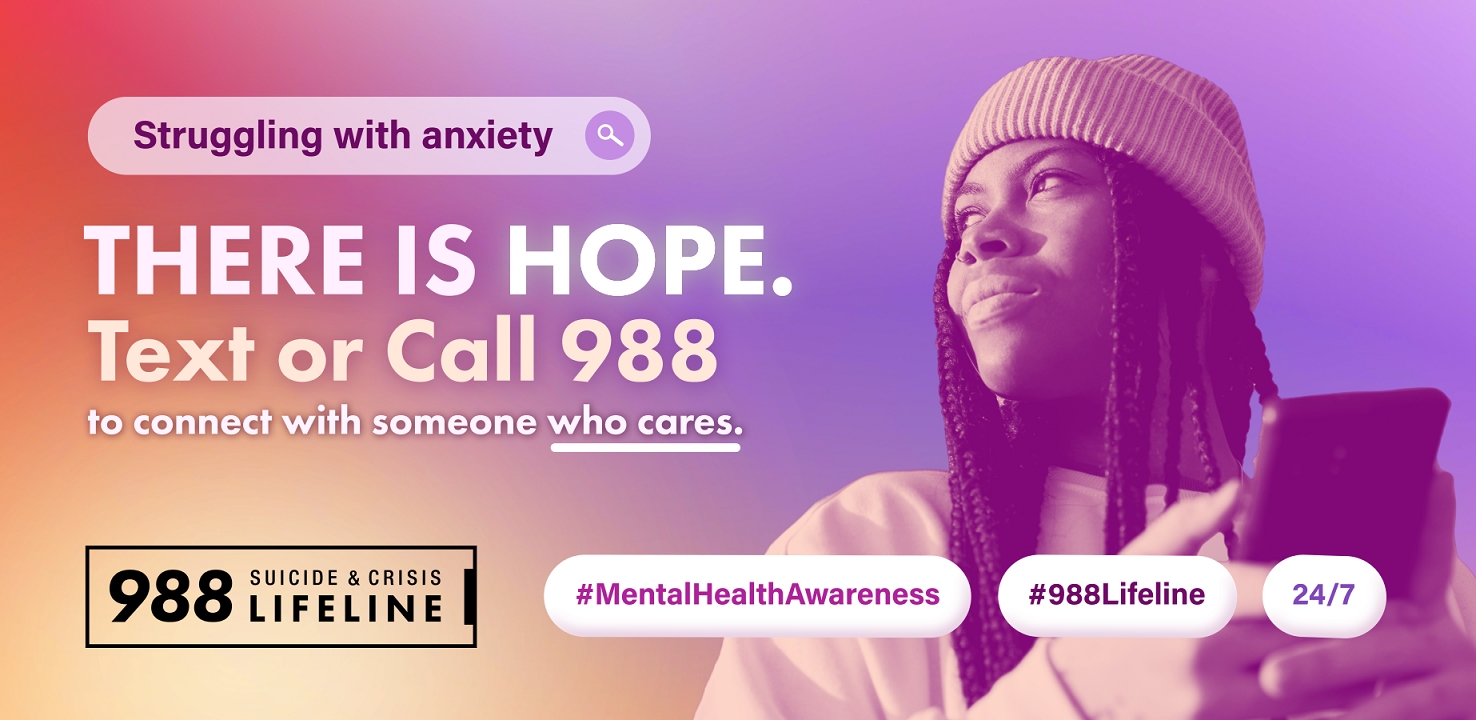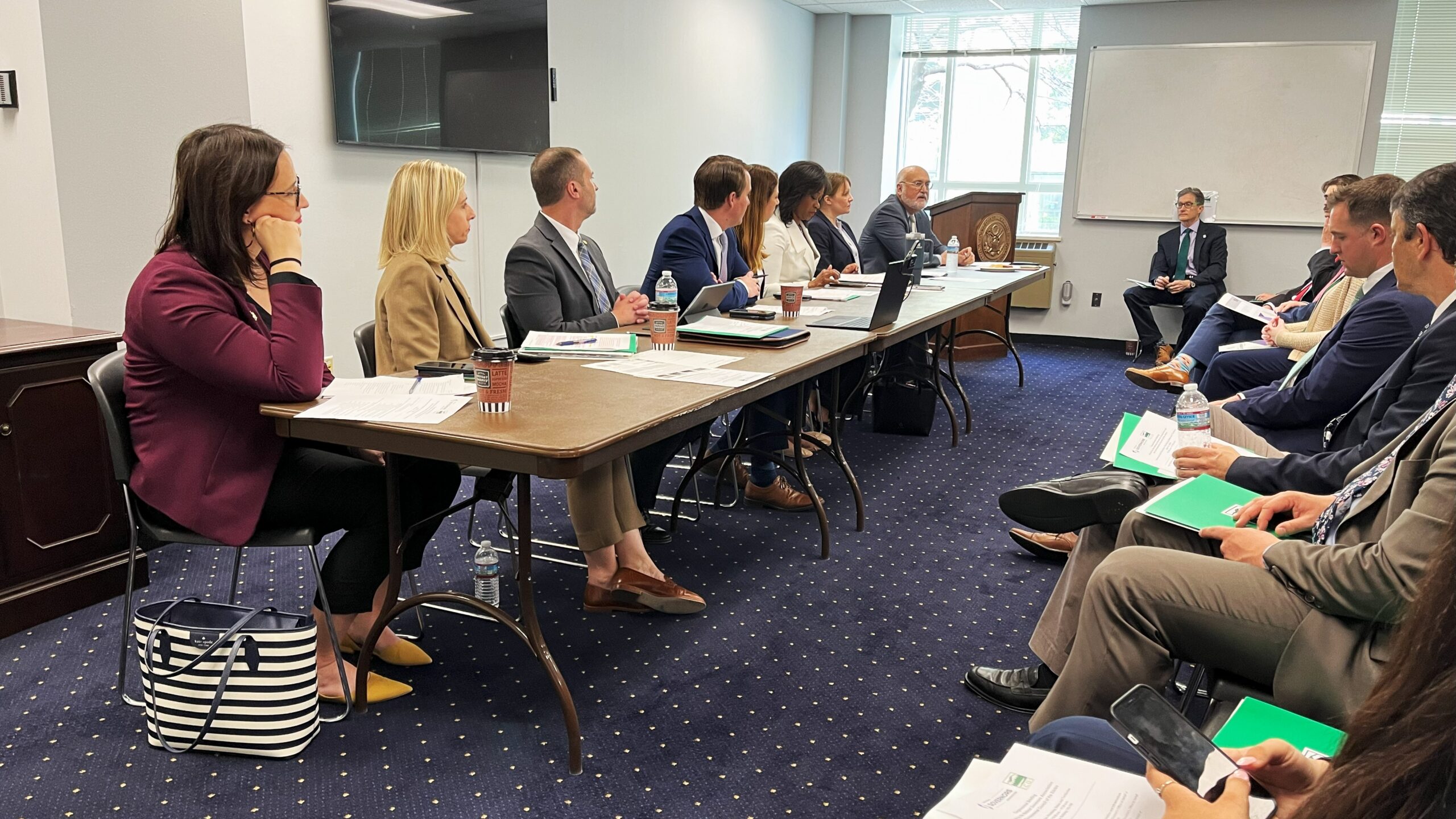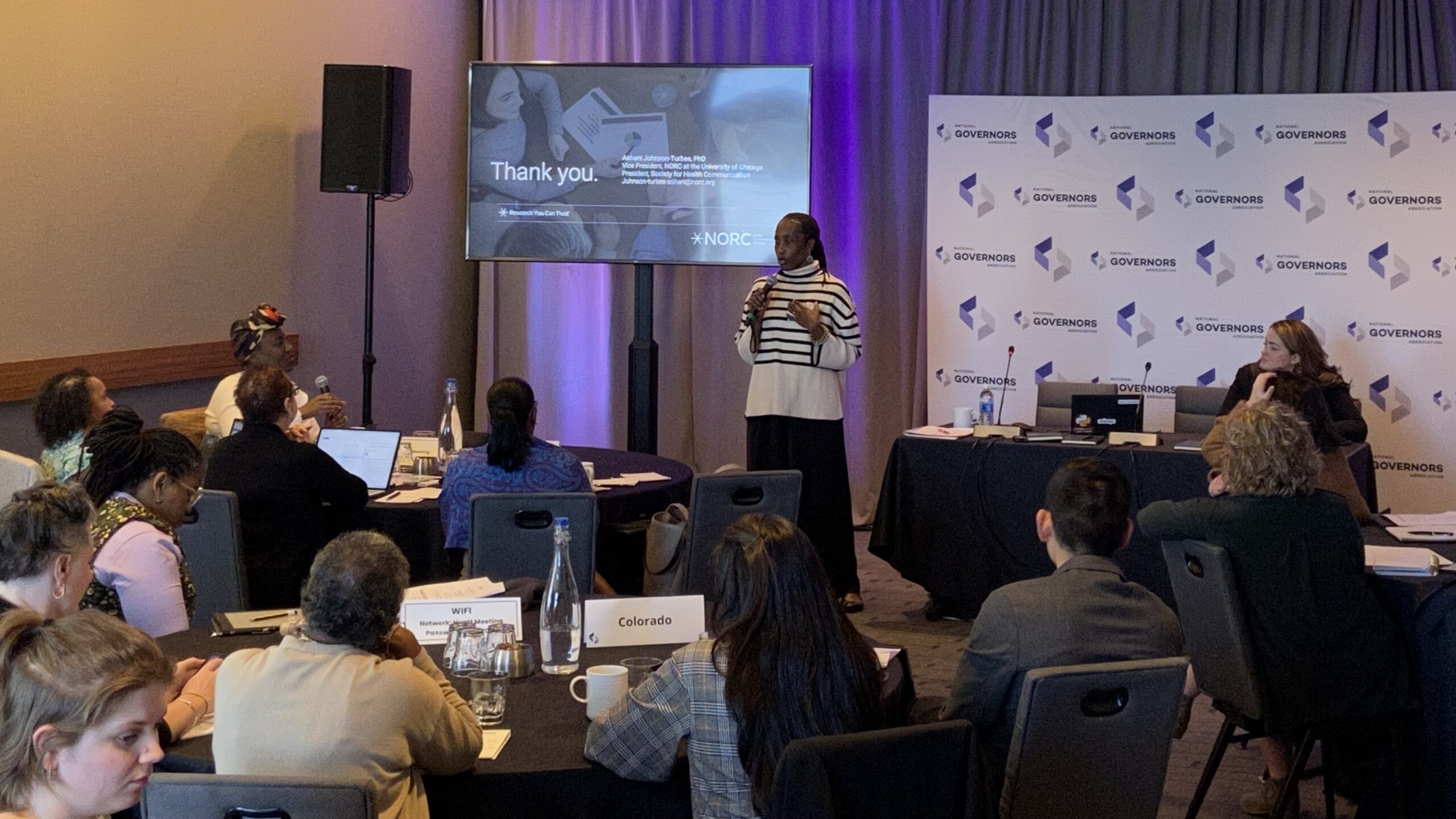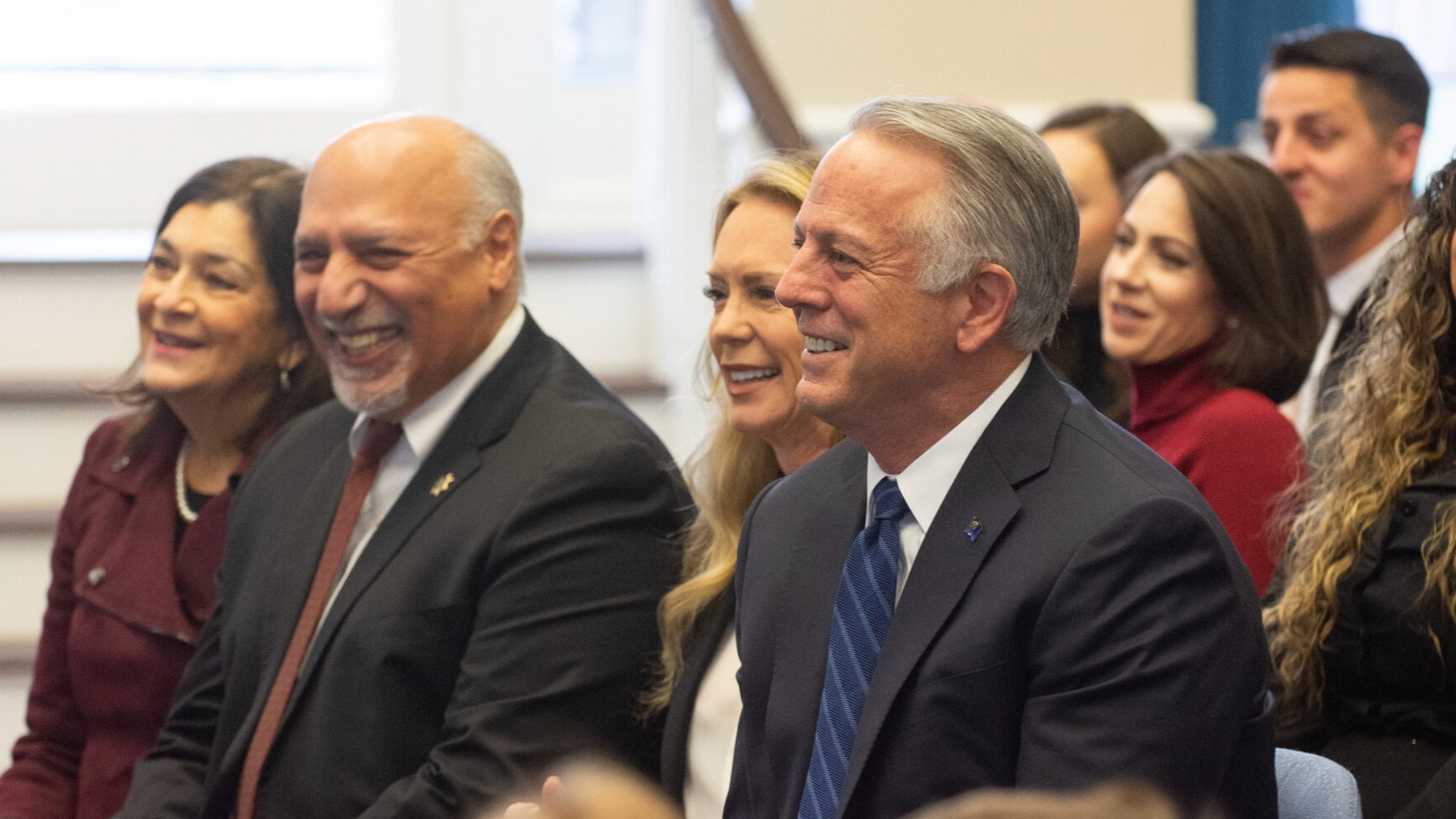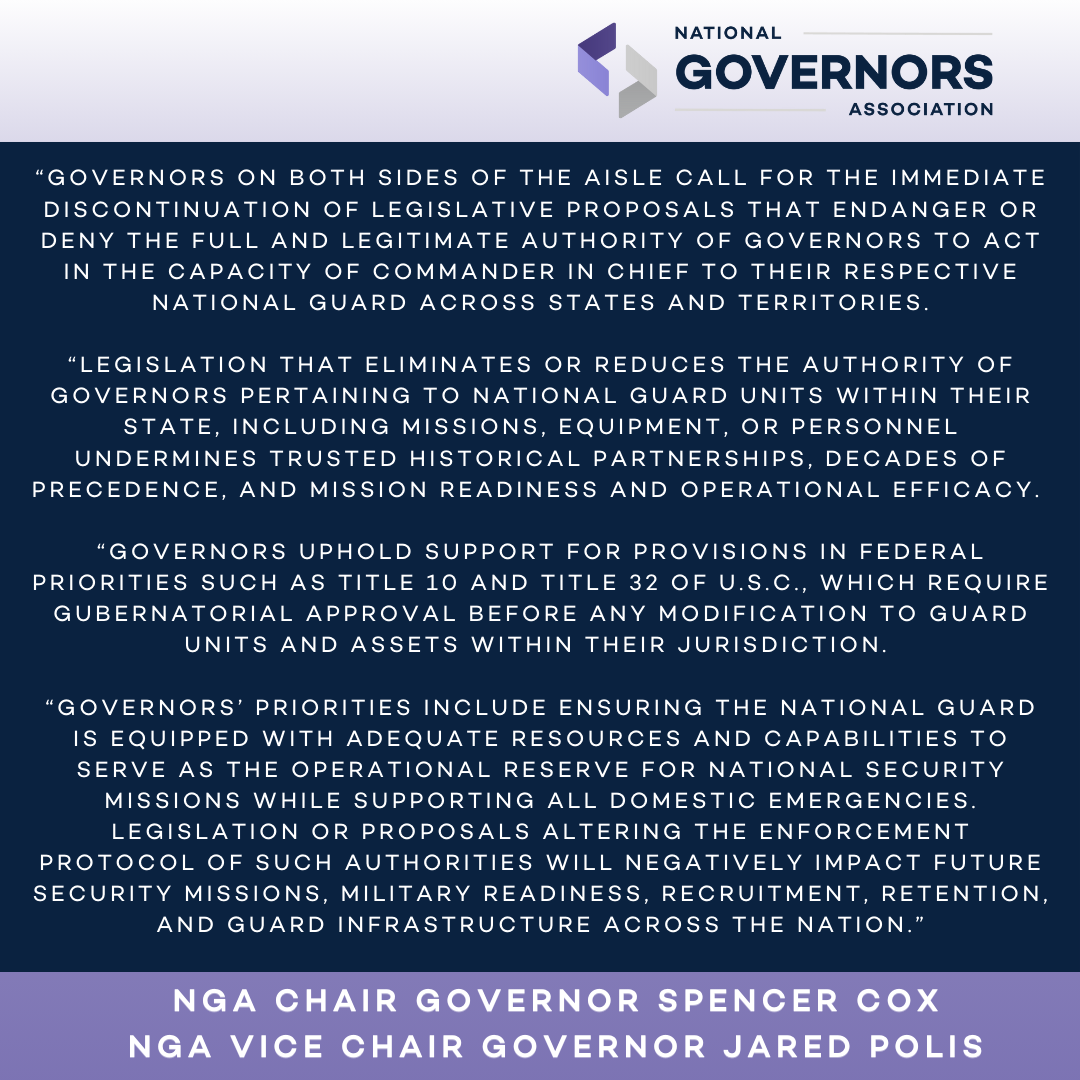Building inclusive apprenticeship programs for people with disabilities is a proven strategy that can lead to strong wages, a pathway to future career opportunities and sustainable permanent employment in high-quality jobs.
By Sophia Yager
The unemployment rate among the one in four American adults living with a disability is more than double the unemployment rate of people without a disability. Barriers to training and employment contribute to a 38% labor force participation rate for people with a disability compared to 78% for people without a disability. Workforce shortages require Governors and policymakers to engage previously untapped talent, especially among underserved populations, including people with disabilities, to develop resilient pipelines that meet current and future labor force demands and provide equitable access to employment and economic opportunity.
Building inclusive apprenticeship programs for people with disabilities is a proven strategy that can lead to strong wages, a pathway to future career opportunities and sustainable permanent employment in high-quality jobs. States can work to expand access to apprenticeships for workers with disabilities to develop a more diverse, skilled workforce through strategies including:
- Developing pre-apprenticeship programs and providing wraparound supports,
- Leveraging the state’s role as a model employer and
- Educating employers about the benefits of sponsoring apprentices with disabilities.
Develop Pre-Apprenticeship Programs and Provide Wraparound Supports
Pre-apprenticeships can be a helpful tool to recruit and prepare people with disabilities for success in apprenticeship programs that, in turn, lead to rewarding and high-paying careers. Pre-apprenticeship programs provide participants with an introduction to the training curriculum, experiential learning opportunities and connection to potential employer sponsors. For people with disabilities, pre-apprenticeships offer a supported on-ramp to an apprenticeship program, helping them meet the entry requirements and identify any accommodations they may need as they begin their apprenticeship program. In addition to pre-apprenticeship programs, offering wraparound supports can help facilitate a smooth transition and sustained success in apprenticeships. Providing access to transportation, childcare, job shadowing, mentorship, benefits counseling and other services can reduce barriers to accessing training and employment.
Launched in December 2021, the New Jersey Career Pathway Partnership for Employment Accessibility is a collaborative led by the state’s community college system and the New Jersey Business and Industry Association to foster inclusive career pathways for people with disabilities. This includes coordinated pre-enrollment services, benefits counseling and placement services for work-based learning programs including pre-apprenticeships and apprenticeships. Additionally, in 2020, the New Jersey legislature enacted a pilot program that provides transportation and child care stipends for apprentices with priority for underrepresented populations, including people with disabilities.
Leverage the State as a Model Employer
State governments can leverage their own status as a large-scale employer to model best practices for private employers in hiring and retaining workers with disabilities, including through state government apprenticeships. Governors can drive coordination among state agencies in developing statewide plans, goals and metrics for recruiting new employees with disabilities and better supporting incumbent employees with disabilities. These strategies might include a fast track hiring policy, a supported application process, flexible scheduling policies, funding and procedures for reasonable accommodations, and training for managers and human resources staff. States can incorporate these policies into inclusive apprenticeship programs that expose people with disabilities to careers in state government that offer pathways with opportunities for advancement. States that successfully implement these policies can benefit from reduced recruitment and onboarding time and cost and increased diversity as they work to educate employers on the value of apprenticeships for people with disabilities.
Ohio Governor Mike DeWine issued Executive Order 2019-03D in January 2019 to establish the state’s Vocational Apprentice Program. Administered by Opportunities for Ohioans with Disabilities, the program provides those who are eligible for vocational rehabilitation services with apprenticeship opportunities in state government to create a pathway to permanent state employment, including career exposure and work-based learning experience. The program includes application and interview support as well as wages of $15/hour. As of November 2021, the program had successfully placed 23 apprentices in programs across 17 state agencies, with apprentices who transition to permanent state employment earning an average hourly wage of $20.
In May 2013, Washington Governor Jay Inslee issued Executive Order 13-02 that set a goal for five percent of the state government’s workforce to be comprised of people with disabilities by June 2017. The order requires state agencies to develop annual employment plans to increase representation of employees with disabilities (with the recommendations and guidance of a designated Disability Employment Task Force). Additional legislation enacted in 2015 also requires all state agencies with 100 or more employees to report annually their numbers of employees with disabilities (including new hires through the Division of Vocational Rehabilitation or the Department of Services for the Blind) as well as internship opportunities that lead to permanent employment. Additionally, in February 2021, Governor Inslee issued Executive Order 21-01 to support the state’s network of business resource groups, including the Disability Inclusion Network that “promotes universal access and creates an environment where people with disabilities can fully participate in all aspects of the workplace,” and promote the state as an employer of choice that is committed to diversity, equity and inclusion in its workforce.
Engage, Educate and Incentivize Employers
As an employer-driven model, apprenticeships require robust engagement with businesses to ensure programs meet employer needs while also providing high-quality on the job training for participants. As states work to build more inclusive apprenticeships, they will need to educate employers on the benefits of sponsoring apprentices with disabilities and provide support to help both the employer and the apprentice succeed. This includes making the business case for and demonstrating how diversity in the workplace increases innovation, productivity and retention as well as the benefits of apprenticeships for employers, including customized training and a sustainable talent pipeline. State partners can also help inform employers about inclusive workplace practices including scheduling flexibility, accommodating various learning styles and providing mentoring opportunities. To provide additional support to employers, states may consider deploying disability employment specialists to work directly with employers to optimize their success in hiring and retaining apprentices with disabilities as well as providing incentives such as tax credits to employers who sponsor apprentices with disabilities.
New York offers several tax incentives to support employers who sponsor apprenticeships for people with disabilities. The Workers with Disabilities Tax Credit provides businesses that hire people with developmental disabilities tax credits up to $5,000 for full-time employment and $2,500 for part-time employment after six months of employment, and can be combined with the federal Work Opportunity Tax Credit (WOTC). The Workers Employment Tax Credit provides businesses that hire people with disabilities (who also receive or recently received vocational rehabilitation services tax credits) with up to $2,100 after one year of employment. The Empire State Apprenticeship Tax Credit provides business with a tax credit of up to $6,000 per eligible apprentice they employ, plus an enhanced tax credit for apprentices who are considered disadvantaged youth, including those who are participants in the Ticket to Work program or who are a member of a family that received Supplemental Security Income (SSI) benefits. The Empire State Apprenticeship Tax Credit also provides an additional $500 tax credit for each apprenticeship who is counseled by a mentor.
The Tennessee Jobs Tax Credit for Hiring Persons with Disabilities offers employers a one-time tax credit of $2,000 for part-time employment or $5,000 for full-time employment of a person with a disability who also receives state services directly related to their disability. The employment of the person with a disability must also create a net increase in the number of people with disabilities employed by the business, and the employee must be enrolled in the employer’s health insurance program.
Additional Resources:
- The Council of State Governments: The Future of Apprenticeship: Inclusion, Expansion, and the Post-Pandemic World of Work
- CAPE-Youth: Expanding Apprenticeships as a Career Pathway for Youth and Young Adults with Disabilities
- National Governors Association: Leveraging Registered Apprenticeship To Build A Thriving And Inclusive Economy
- National Governors Association: Promoting Employment For People With Disabilities Through Statewide Coordination
- National Governors Association: Governors’ Role In Promoting Disability Employment In COVID-19 Recovery Strategies
This commentary is supported through NGA’s participation in the State Exchange on Employment & Disability (SEED), a unique state-federal collaboration facilitated by the United States Department of Labor Office of Disability Employment Policy to support state and local governments in adopting and implementing inclusive policies and best practices that lead to increased employment opportunities for people with disabilities, and a stronger, more inclusive American workforce and economy.



